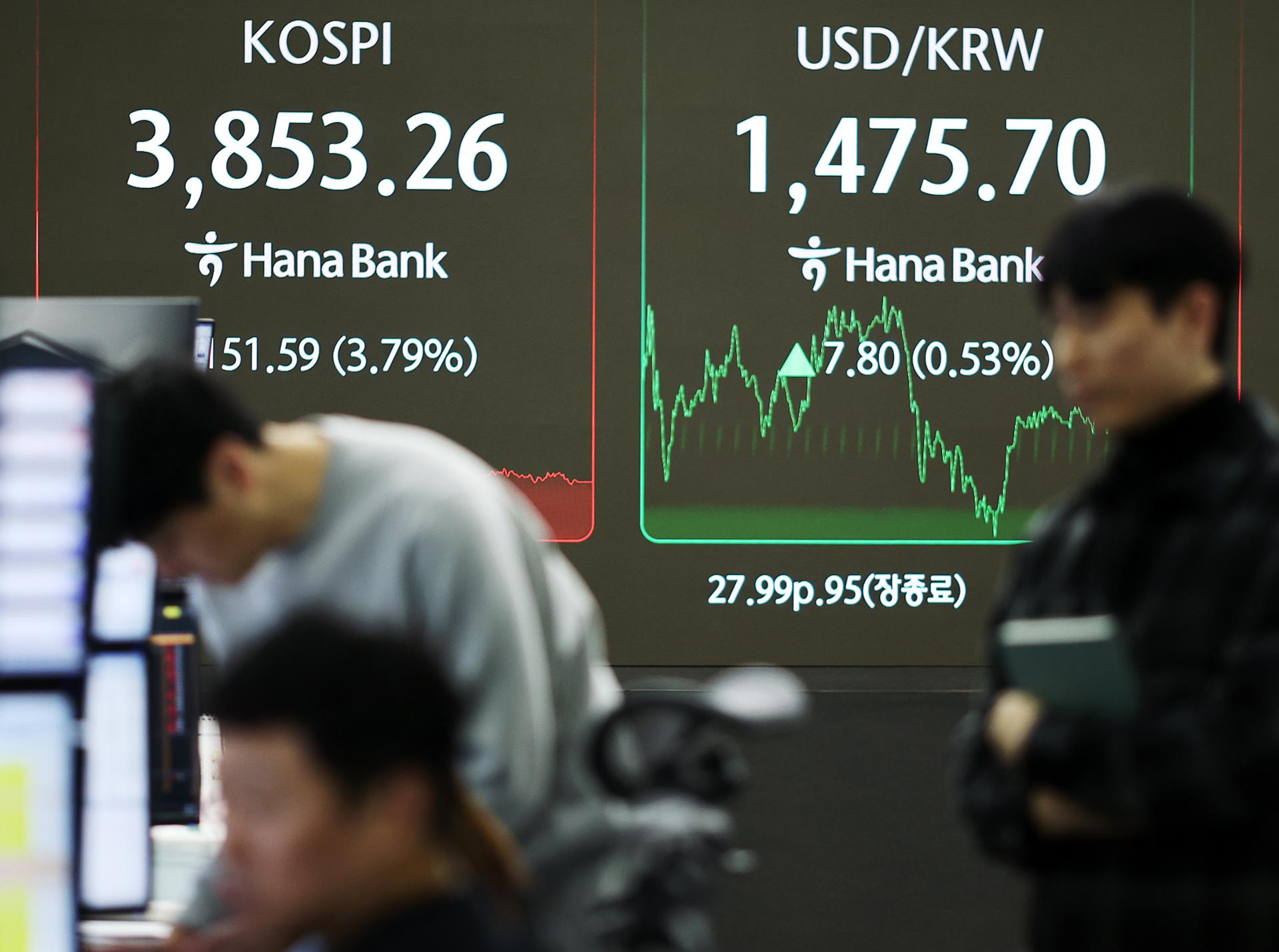Seoul Stocks Plummet as AI Bubble Fears Intensify; Korean Won Hits 7-Month Low Amid Heavy Foreign Selling
 South Korea
Finance
South Korea
Finance

Seoul's KOSPI plunged on AI bubble concerns and massive foreign selling, pushing the Korean won to a 7-month low against the dollar. Tech shares led declines.
Seoul Stock Market Plummets Amid AI Bubble Fears; Won Sinks to 7-Month Low
Seoul's financial markets experienced a significant downturn on Friday, with the benchmark KOSPI index plummeting and the Korean won falling to its weakest level in seven months against the U.S. dollar. Renewed concerns over a potential "AI bubble" heavily impacted major technology stocks, leading to widespread investor caution.
KOSPI Takes a Major Hit
The Korea Composite Stock Price Index (KOSPI) concluded the trading day down a sharp 151.59 points, or 3.79 percent, settling at 3,853.26. This significant drop was largely fueled by massive foreign selling, which amounted to a net 2.83 trillion won. This marks the largest offshore investor net selling activity recorded since February 26, 2021, underscoring the severity of investor exodus from the market. While foreign investors offloaded shares, domestic retail and institutional investors stepped in, buying 2.29 trillion won and 495.46 billion won worth of shares, respectively.
Driving Factors: AI Concerns and Fed Policy
The market's decline followed overnight losses on Wall Street and was exacerbated by growing investor apprehension regarding the valuations of AI-related companies and their aggressive investment strategies. Compounding the negative sentiment were shifting expectations around the U.S. Federal Reserve's monetary policy, as hopes for further interest rate cuts continued to diminish.
According to Han Ji-young, a researcher at Kiwoom Securities, the market effectively surrendered the gains made from the previous day's Nvidia earnings surprise. "Following recent sharp gains, volatility appears to have persisted," Han noted, while also suggesting, "But there remains ample potential for sentiment to reverse depending on upcoming key economic data and additional AI-related developments."
Tech Giants Lead the Sell-Off
Tech giants bore the brunt of the sell-off after experiencing a rally in the prior session. Market leader Samsung Electronics saw its shares fall 5.77 percent to 94,800 won, while chipmaking powerhouse SK Hynix plunged an even steeper 8.76 percent to 521,000 won. Other significant declines included major battery producer LG Energy Solution, which lost 3.51 percent to 425,500 won, and LG Chem, which dipped 5.53 percent to 367,000 won.
Broader Market Performance
Broader industrial sectors also felt the pressure. Nuclear power plant constructor Doosan Enerbility dropped 5.92 percent to 73,100 won, and defense contractor Hanwha Aerospace shed 5.13 percent to 869,000 won. Leading shipbuilder HD Hyundai Heavy skidded 4.8 percent to 555,000 won, and its competitor Hanwha Ocean lost 4.16 percent to 119,800 won. South Korea's top steelmaker, POSCO, saw its stock decline 3.42 percent to 310,500 won.
Automakers presented a mixed picture: top automaker Hyundai Motor retreated 0.95 percent to 259,500 won, but its sister affiliate Kia managed a slight gain of 0.53 percent, closing at 114,000 won. Among financial groups, KB Financial decreased 0.58 percent to 120,500 won, while internet portal operator Naver defied the trend with a 2.14 percent surge to 262,500 won.
Korean Won Plunges to Seven-Month Low
The Korean won's value significantly depreciated, closing at 1,475.6 won against the U.S. dollar at 3:30 p.m., a drop of 7.7 won from the previous session. This marks its weakest performance since April 9, when it ended at 1,484.1 won. The April 9 figure was itself the lowest since March 12, 2009, during the height of the global financial crisis, when the won traded at 1,496.5.
Bond Market Sees Gains
Conversely, bond prices saw an increase, indicating a fall in yields. The yield on three-year Treasurys decreased by 3.6 basis points to 2.872 percent, and the return on benchmark five-year government bonds fell by 3.9 basis points to 3.076 percent.